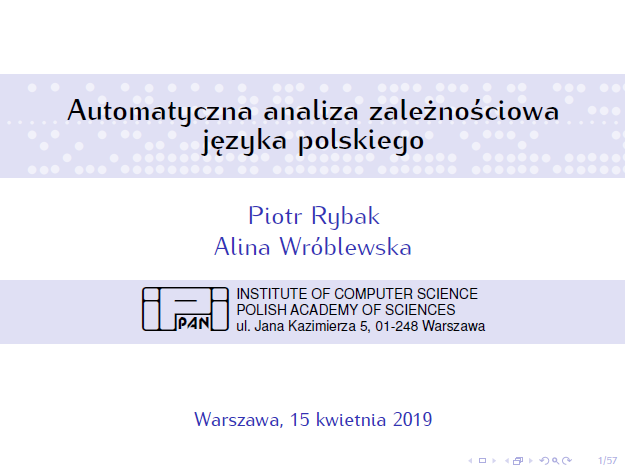10.06.2019 - Seminarium Instytutowe - godz. 13:00,
Laure Petrucci (Uniwersytet Paryż 13)
Streszczenie (autorskie):
This paper considers the consistency problem for Parametric Interval Markov Chains. In particular, we introduce a co-inductive definition of consistency, which improves and simplifies previous inductive definitions considerably. The equivalence of the inductive and co-inductive definitions has been formally proved in the interactive theorem prover PVS. These definitions lead to forward and backward algorithms, respectively, for synthesizing an expression for all parameters for which a given PIMC is consistent. We give new complexity results when tackling the consistency problem for IMCs (i.e. without parameters). We provide a sharper upper bound, based on the longest simple path in the IMC. The algorithms are also optimized, using different techniques (dynamic programming cache, polyhedra representation, etc.). They are evaluated on a prototype implementation. For parameter synthesis, we use Constraint Logic Programming and the PARMA library for convex polyhedra.
Praca we współatorstwie z Jaco van de Pol (University of Twente)





